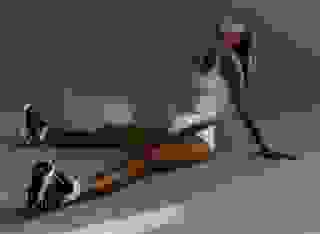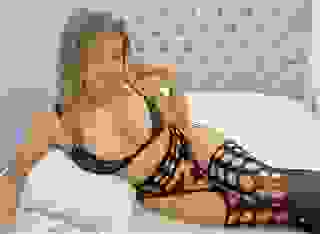- Non-Erotic
- Rebirth
- Page 2
Note: You can change font size, font face, and turn on dark mode by clicking the "A" icon tab in the Story Info Box.
You can temporarily switch back to a Classic Literotica® experience during our ongoing public Beta testing. Please consider leaving feedback on issues you experience or suggest improvements.
Click hereCHAPTER FOUR
I was more than 20 years into my sentence when a combination of fortuitous events occurred and upended everything, leading to my exoneration and release.
The first event was the crash of a small private jet on its way from Teterboro Airport in New Jersey to Hilton Head. The jet had been leased to fly a group of hyper-wealthy New Yorkers to a golf outing. Among the six passengers on the plane was a 40-something trust fund leach, the last twig in the family trees of two long-established and incredibly wealthy New England families. Although no one knew it at the time of his demise, this supposedly upstanding citizen, thought to be one of the city's most eligible bachelors and man about town, was a psychopathic serial killer. His victims, among others, included the two young women for whose murder I'd been convicted. I refuse to use his name.
The psychopath's demise would not have changed my life one iota, were it not for his collection of trophies from his victims, which he had carefully curated and stored in a storage locker in lower Manhattan. With his death, payments on the storage locker ceased. When the lease expired two months later, the contents were auctioned off. Among the bidders was a retired New York City homicide lieutenant, who occasionally bid on the contents of such lockers as a hobby. The locker was unusually neat, with everything in bankers' boxes stacked several layers deep, suggesting little of interest but old papers. There were some valuable old papers, mostly items of interest to museums specializing in colonial historical documentation. That material had passed down the psychopath's family tree until ending up in his possession. There were also some other things.
I will go to my grave believing that had anyone else won the bid for the contents of that locker, I'd still be in prison today. The retired cop, who specifically asked not to be identified in any written account of these events, had been involved in several serial killer cases during his 30-year career. He began inventorying the contents of the locker. Toward the back, several layers in, he discovered that several of those boxes contained smaller boxes, every one of which was numbered. Each of the smaller boxes had a set of women's underwear, one or more pieces of jewelry, and newspaper clippings from around the country concerning the disappearance of a young woman. In the boxes relating to earlier instances, there were VHS tapes, which when played showed a young woman being stalked, then assaulted, and then murdered. The location of the body was marked on a USGS topographic map, probably so the psychopath could revisit the site should he so choose. Later instances had DVDs or thumb drives which would prove to contain similar materials.
There was a laptop in one of the boxes and a small VHS player connected to an old television. Apparently, the psychopath liked to travel down memory lane from time to time. The detective watched a portion of the first tape, then threw up in the hallway of the storage facility. He never looked at any of the other recordings. Each box also had a narrative written in longhand, describing what had happened, identifying how things might have been "improved" for the next time, and detailing how the psychopath felt after his "experience." In one of the boxes there was a plan, describing the psychopath's intent to abduct one woman in each state in the union. There was also a chart listing the fifty states and marking off each one in which a young woman's murder had been committed. There were sixteen states marked off, one of which contained two check marks rather than just one. The chart was cross-referenced to the boxes in which the trophies were stored. The box corresponding to the double check mark contained two sets of underwear, more than the usual amount of jewelry, clippings relating to my trial and a narrative that included a recitation of the pleasure the psychopath experienced at having fooled the authorities so completely that someone else had been held responsible for the two murders he'd committed.
The detective secured the locker and placed a call to a former colleague who was still an active homicide detective. She came down, looked at the contents of the boxes, and immediately had an evidence collection team assigned to go through the entire locker. Once she had a list of the various locations tied to the trophy collection, the colleague reached out to each of jurisdictions for which there was a trophy box. She discovered that every one of those jurisdictions had a related open case, except for the one involving the two murders for which I was imprisoned. The retired detective also reached out to his daughter, a junior partner in a large New York law firm. Much to his disgust, and the subject of numerous arguments over the years since she'd graduated from law school, his daughter occasionally did pro bono work for The Innocence Project, an organization dedicated to obtaining relief for persons claiming to have been wrongfully convicted of serious crimes. He told her what he had discovered. Then, to her utter astonishment, he demanded that she take the case to reverse my conviction and free me from prison.
I knew none of this several weeks later when I was informed that I had a visitor, an attorney who wanted to represent me. I had not had a visitor since Sam died. I knew of no reason why I should be involved in any matter that required legal representation. My wife and my children were gone, my parents were dead and their estate settled, my brother and sister had disowned me, I had no friends, and I had no unresolved claims against the prison system of which I was aware.
I found myself sitting in an attorney conference room across from a woman in her late 30s, dressed in a suit that screamed "money". She was holding a file that was several inches thick. The attorney introduced herself, telling me to call her Maureen (not her real name, as she and her father share a last name and identifying her would also identify him). Maureen worked for a law firm I'd never heard of in New York City and was here on behalf of The Innocence Project. She wanted me to sign some papers appointing her my attorney so she could represent me in another appeal of my conviction.
I still remember my exact words to her when she told me this. "Lady," I said, "I don't know what your game is or why you picked me to torture. Absolutely the cruelest thing you can do to a man like me is to pretend there is hope for an end to the Hell that I experience every day in this place. I'm effectively a dead man walking. I'll be here until I'm so ill they move me to some prison nursing home or until I die. We both know that the time for appeals has long expired and that unless you have someone who has confessed and recorded his committing the murders for which I'm here, no appeal is going to succeed. What the fuck are you doing here?"
I still remember her reply, too. "Funny that you should say that. It so happens that we have just such a person and just such a confession. It's written, not recorded, but it makes crystal clear that you had nothing to do with the murders of those two women. Would you like to see a copy?"
And damned if she didn't have exactly that. For the first time in decades, I began to have hope that there was an end to my time in this hellhole. I signed the papers she placed in front of me and retained her as my attorney.
We spent more than six hours going through her file, document by document. I missed all three of my literacy classes that day. The information her father had found in the storage locker was only the beginning. Her firm had invested multiples of what I'd been able to spend on a defense lawyer twenty plus years earlier in gathering information about the comings and goings of the psychopath and tracing the activities of his victims that evening. The two women were some of his earliest trophies. He'd found them in a bar less than a block from the hotel. He'd cut one of them out of the crowd she was with and gotten her to accompany him to the parking garage. There he drugged her before putting her into my rental car, which he'd apparently chosen because it had a rental car logo on it and the driver was unlikely to be able to provide a good description or a license plate number. We never did find out how he got into the car, although use of a slim jim seems likely. He was probably hotwiring the car when the second woman, who'd seen him leaving with her friend and followed, caught up with them and saw what was going on. He'd drugged her, too. Apparently, whatever he used wasn't enough, as she woke up while he was driving out of the city, headed toward an isolated cabin he'd rented especially for his planned activities. He'd panicked, pulled over and disabled her in some way. Fearing she wouldn't stay unconscious until he reached the cabin, he then drove to the site where he put both women in the trunk and set the car afire. It was unclear from his narrative whether they'd still been alive or were already dead when he started the fire.
The work her firm had done confirmed that the cops originally investigating this case had stopped looking as soon as I appeared in their sights. There was no evidence that they'd traced the women's path the day they had died nor interviewed anyone who had seen them with the psychopath. Once they had focused on me, all other investigative efforts had been abandoned. The amount of pressure placed on the investigative team by the victims' families was so severe that no one wanted to be the devil's advocate and question the likelihood of my being the murderer.
It took almost another year, but finally, after twenty-two years, three months and seventeen days of confinement, I again stood in a courtroom in front of a judge. He told me my conviction had been reversed, I was being issued a certificate of innocence by the court, and my arrest and conviction record was being expunged from all state and federal databases. He then went on to say that the wrongful conviction fund that the state legislature had created a few years before (after an embarrassing series of wrongful convictions, most involving young minority males, were reversed), would be paying me $100,000 for each year of my imprisonment, or $2.2 million dollars. He apologized that "the system" had so badly failed me. The judge went on to say that he understood what a poor substitute any amount would be for the large chunk of my life that had been stolen from me by the system's failure. He asked me if I had anything to say before he adjourned. I looked at Maureen, who nodded and told me to go ahead.
"Judge," I began, "If I sound bitter and angry at what I'm about to say, there's more than good reason. The 'system' as you call it took everything that makes a life worth living from me and now it wants me to accept that it's sorry it screwed up, forgive it, and go away with check in hand. I find that a little hard to do."
I went on. "Let me tell you what that screwup cost me. My wife, whom I loved and expected to grow old with, is gone. My children, whom I loved more than life itself, have been taken from me. I don't know what they look like and could pass them on the street without recognizing them. The only photo I have of them sat in a wallet for 22 years and is so badly damaged as to be virtually useless. I have no idea where they are. Even if I could locate them, I'd be a stranger to them, not their father. Some other man claims that role. I never had a chance to see them on their first day of school, play catch with my son or dance with my daughter. I missed their sporting events, their first loves, their proms, their high school and college graduations. I'll never have the chance to walk my daughter down the aisle at her wedding nor see my grandchildren. My parents died thinking I was a murderer. I have not a single memento or photo of either of them. I didn't get to comfort my mother when my father died nor be there with her when her time came. I can't even go to their gravesides and mourn them because I have no idea where they are buried. The rest of my family and all my friends abandoned me. I lost a job I loved and the chance of a career that I am certain would have been successful and rewarding. I don't even own any clothes except this ill-fitting prison-issued suit I'm standing here in. I don't have a bank account, a credit card, a driver's license, or a phone. I have no place to go when I leave here. The scars on my mind, my heart and my soul will never heal."
I paused for a moment, took a deep breath, then continued. "As nearly as I can tell, not one person involved in the 'system' has been held accountable in any way. No one lost his job, forfeited his pension, was removed from office, was accused or convicted of some sort of crime for their negligence, or suffered in any other way whatsoever. None of the people who did this to me are here today to apologize to me in person. None of their reputations were dragged through the mud in the news media for months. Nor have I heard one word that suggests someone is working on modifying the system so this never happens to anyone again. So, when you say 'sorry' you'll have to forgive me if I tell you that sorry doesn't cut it one damn bit, with or without the check. I'll take the money, because I have to live, but unless you can give me back all that the system took from me, your apology is meaningless. I cannot accept it or forgive the system or anyone involved in it for what they did to me."
The courtroom was silent for more than a minute after I finished. What I didn't realize was that there was a television news team recording the entire proceeding. It would lead that day's news broadcast in the city and go viral on something Maureen called social media. The judge looked at me, nodded his head slowly in acknowledgement of what he'd just heard and adjourned the court without another word.
As I walked out of the courthouse, there were print and television news crews clamoring for me to speak. I stood on the courthouse steps and gestured for silence. "I have a brief statement to make to the press and I will not accept questions afterward. You bastards went whole hog convicting me in the court of public opinion before my trial some twenty-two years ago. You so blackened my name that I'll never be able to recover my reputation. You were lazy and didn't ask hard questions nor do any investigations of your own to challenge the narrative that was spoon fed to you. You are the scum of the earth, and I wouldn't give you an interview or answer one of your questions if it would keep the world spinning on its axis or prevent the sun from going dark. Come back to me when you have put as much effort into clearing my name as you did in destroying it. I know that will never happen, so I happily stand here and tell you to all go to Hell!"
With that, I grabbed Maureen's arm and we walked down to the car that was waiting to take me away to begin the journey that would be the rest of my life.
CHAPTER FIVE
When a long-term prisoner is being released back into society, there is a whole process for reacquainting him with the world. There is a transfer to a halfway house, assistance with obtaining the necessary documentation that life in our culture demands and reentry counseling. None of those were part of the package I received from the state. However, I was not the first person dumped on the street by the system and The Innocence Project was familiar with the steps necessary to allow me to reintegrate into society. They helped me get a bank account, a driver's license, find a place to live and, with input from Maureen, helped me find a financial advisor to assist in managing my money. Most importantly, they got me into a counseling program, which I attended three afternoons a week.
Maureen stayed in touch, checking up on me every month to six weeks. I'd been out about six months when she called to tell me that she had some news she thought I'd appreciate. When her firm had taken my case, it had also reached out to all the families of the psychopath's other victims. On their behalf and mine, they had sued the psychopath's estate. In addition to his trust funds, the psychopath had substantial assets and those assets had been supplemented by a settlement from the aircraft manufacturer, private jet company and their maintenance company as a result of the plane crash. She had recovered $3 million for each of the families and another $2.2 million for me. She wanted my permission to contact my financial advisor to wire him the money. I gave her the information, thanked her again for all she had done for me, and called the advisor to ask him to transfer $250,000 to The Innocence Project's endowment, which he did. I later found out from Maureen's father that my case and the suit against the psychopath's estate had generated enough revenue for the firm to get Maureen a promotion to senior partner, a well-earned result from my perspective.
My counselor worked very hard at helping me reintegrate into society. I had missed so much in the twenty-two years I was inside. Technology had galloped ahead. Cars were completely different. References to popular culture went right by me, leaving me embarrassed in casual social interactions. After months of working together, she finally brought up the elephant in the room. "When are you going to reach out to your children and your siblings?"
"I don't know where they are."
"Have you looked?"
"No. And I wouldn't know where to start."
"You know, there are people who investigate such things for a living. You have the money. You could hire one of them to look for you."
"I'm afraid."
"Of what?"
"Of losing the last bit of family that I have."
"You have no family. You made that clear in your speech in the courthouse that day. I saw it on Facebook and I've watched it multiple times to try to help me understand you."
"Yes, I do have a family. In my head and my heart, I still have two little children whom I love and who love me. It's not much, but it's all I have and all I ever expect to have. If I pursue reconnecting with them and they reject me, I'll lose the last little bit of myself. I don't think I could continue living after that."
She sat silent for a long time, just staring at me. Finally, she said softly, "We'll talk about this again." Our session ended.
CHAPTER SIX
Having enough money that you never have to work again can be a curse as well as a blessing, particularly for someone who spent decades of his life in a highly structured environment. For more years than I cared to think about, I'd been told when to get up, what to eat, where to go, when to go to bed, and when to turn out the lights. Losing that structure was disconcerting to say the least.
Remembering Sam's guidance from long ago, I had continued an exercise program, but now I decided to join a gym. There was a local gym, part of a large national chain, the was a couple of miles from the suburban apartment in which I was living. I began running over there every day, lifting weights for hours, then spending an hour riding an exercise bike or climbing the endless steps of a stairstep device before running home again. In time, I attracted the attention of several of the trainers, who began to give me advice on how to improve my fitness program, particularly emphasizing moderation and varying my workouts to avoid injury or burnout. Since exercising to exhaustion was a key component in my being able fall asleep at night, I listened to them and modified the workouts to avoid overstressing joints or muscles. I was exercising five to six hours a day in total. In time, I developed a body that reflected the work I was doing. I wasn't a steroid stoked body builder, but I did have a slim build with distinct musculature and carried very little body fat.








